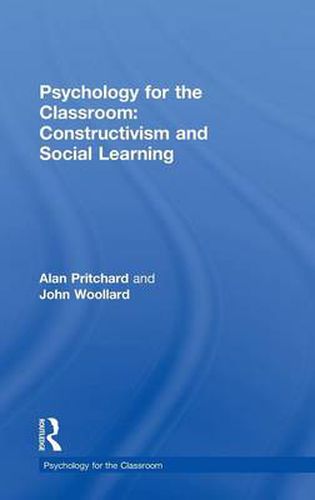Readings Newsletter
Become a Readings Member to make your shopping experience even easier.
Sign in or sign up for free!
You’re not far away from qualifying for FREE standard shipping within Australia
You’ve qualified for FREE standard shipping within Australia
The cart is loading…






Psychology for the Classroom: Constructivism and Social Learning provides a lively introduction to the much debated topics of talk and group collaboration in classrooms, and the development of interactive approaches to teaching. The authors provide a background to research in constructivist and social learning theory, offering a broad and practical analysis which focuses on contemporary issues and strategies, including the use of e-learning and multimedia. Throughout the book theory is linked with its practical implications for everyday teaching and learning and chapters incorporate: the history of constructivist and social learning theory and key thinkers pedagogical implications practical strategies for the classroom constructivist theory and e-learning. Case studies and vignettes demonstrating best practice are used throughout the text, illustrating how monitored collaboration between learners can result in an effective learning environment where targets are met. Essential reading for practising teachers and students, this book is a valuable guide for those looking to provide effective teaching and learning within a constructivist framework.
$9.00 standard shipping within Australia
FREE standard shipping within Australia for orders over $100.00
Express & International shipping calculated at checkout
Psychology for the Classroom: Constructivism and Social Learning provides a lively introduction to the much debated topics of talk and group collaboration in classrooms, and the development of interactive approaches to teaching. The authors provide a background to research in constructivist and social learning theory, offering a broad and practical analysis which focuses on contemporary issues and strategies, including the use of e-learning and multimedia. Throughout the book theory is linked with its practical implications for everyday teaching and learning and chapters incorporate: the history of constructivist and social learning theory and key thinkers pedagogical implications practical strategies for the classroom constructivist theory and e-learning. Case studies and vignettes demonstrating best practice are used throughout the text, illustrating how monitored collaboration between learners can result in an effective learning environment where targets are met. Essential reading for practising teachers and students, this book is a valuable guide for those looking to provide effective teaching and learning within a constructivist framework.